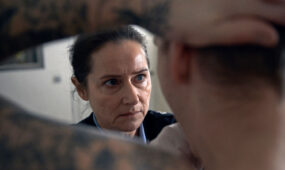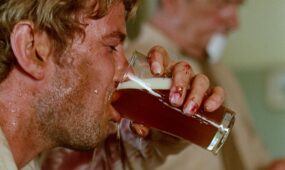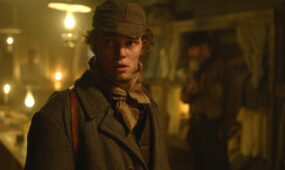The Age of Adaline
Film & TV

Following a car accident in the 1930s, Adaline (Blake Lively) ceases to age and is left looking 29 years of age.
She must constantly take on new identities to escape inconvenient attention. The essence of the tale, then, is Adaline trying to keep her secret but at the cost of never having a lasting love, a situation that has left at least one very keen suitor bereft.
In the contemporary world, where most of the story is set, Adaline has become librarian Jenny. Only her daughter, Flemming (Ellen Burstyn), maintains constant contact, and their mother/daughter conversations are neat reversals whenever they pop up.
It’s time for the entrance of the difficult beau. Ellis Jones (Michiel Huisman) is a rich, do-good, bearded, DIY guy from the cover of a stereotypical romance. You can bet he’s soon besotted but that Jenny needs to preserve her mysterious distance, just as you can lay odds that love will find a way to bring these characters together. Still, at this point she must hover over the decision to run once more.
At the start, Adaline foreshadows a significant plot moment when she counsels a forger not to get sloppy because “it’s the little things that trip you up”. It is obviously a tip-off line, but then this is a very predictable movie.
Adaline’s past, as they say, is bound to catch up with her. An affair with William Jones (a credible job by Anthony Ingruber) in the ’60s lays the foundation for a crisis that will steer her life in a new direction. Harrison Ford is reasonably good value as the older William at this stage, showing up Huisman’s wooden acting.

Get InReview in your inbox – free each Saturday. Local arts and culture – covered.
Thanks for signing up to the InReview newsletter.
The whole device does not hold. The plot is wonky and derivative. The frequent voice-overs are appalling, indicating a lack of faith in the viewing audience’s intelligence and, in this case, offering an utterly contrived plot component.
Suspending your disbelief is a huge request. It’s mushy and melancholic, even with a happy ending.
Best avoid.
Support local arts journalism
Your support will help us continue the important work of InReview in publishing free professional journalism that celebrates, interrogates and amplifies arts and culture in South Australia.
Donate Here






Comments
Show comments Hide comments